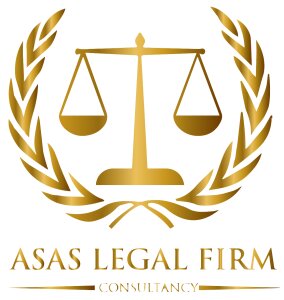Best Trusts Lawyers in Egypt
Share your needs with us, get contacted by law firms.
Free. Takes 2 min.
Or refine your search by selecting a city:
List of the best lawyers in Egypt
About Trusts Law in Egypt
Trusts in Egypt are governed by the Civil Code and the Egyptian Trust Law of 1948. A trust is a legal relationship where a trustee holds property for the benefit of another person or entity, known as the beneficiary. Trusts are commonly used for estate planning, protecting assets, and charitable purposes.
Why You May Need a Lawyer
There are several situations where you may need a lawyer's assistance with trusts in Egypt. This includes drafting a trust deed, interpreting trust documents, resolving disputes among beneficiaries, and ensuring compliance with local laws and regulations.
Local Laws Overview
Key aspects of local laws relevant to trusts in Egypt include the requirement for trusts to be established in writing, the prohibition on perpetuities, and the mandatory registration of trusts with the relevant authorities. Additionally, trustees have a duty to act in the best interests of the beneficiaries and are held accountable for any breaches of trust.
Frequently Asked Questions
1. What is a trust deed?
A trust deed is a legal document that establishes the terms and conditions of a trust, including the roles and responsibilities of the trustee and beneficiaries, the purposes of the trust, and the distribution of assets.
2. Can a trust be revoked or amended?
Yes, a trust can be revoked or amended under certain circumstances specified in the trust deed or by court order.
3. Are there taxes applicable to trusts in Egypt?
Yes, trusts in Egypt are subject to taxation on income and capital gains. It is important to consult with a tax advisor to ensure compliance with local tax laws.
4. What are the duties of a trustee?
Trustees have a duty to act in the best interests of the beneficiaries, manage the trust assets prudently, and keep accurate records of all transactions involving the trust.
5. Can a foreigner create a trust in Egypt?
Yes, foreigners can create trusts in Egypt, subject to compliance with local laws and regulations.
6. How can disputes related to trusts be resolved?
Disputes related to trusts can be resolved through mediation, arbitration, or litigation in the Egyptian courts, depending on the nature and severity of the dispute.
7. Can a trust be used for charitable purposes in Egypt?
Yes, trusts can be established for charitable purposes in Egypt, subject to approval from the relevant authorities and compliance with the applicable laws and regulations governing charitable organizations.
8. Is it necessary to register a trust in Egypt?
Yes, trusts in Egypt must be registered with the relevant authorities to ensure transparency and compliance with local laws and regulations.
9. What happens to a trust when all beneficiaries have passed away?
When all beneficiaries of a trust have passed away, the trust assets are typically distributed according to the terms specified in the trust deed or as directed by the court.
10. How can I find a reputable trust lawyer in Egypt?
You can find a reputable trust lawyer in Egypt by asking for recommendations from friends or colleagues, searching online directories, or contacting the Egyptian Bar Association for referrals.
Additional Resources
For more information on trusts in Egypt, you can consult the Egyptian Bar Association, the Ministry of Justice, and legal professionals specializing in trust law.
Next Steps
If you require legal assistance with trusts in Egypt, it is recommended to consult with a qualified trust lawyer who can provide guidance and support based on your specific circumstances. Be sure to gather all relevant documents and information before seeking legal advice to ensure a smooth and efficient process.
Lawzana helps you find the best lawyers and law firms in Egypt through a curated and pre-screened list of qualified legal professionals. Our platform offers rankings and detailed profiles of attorneys and law firms, allowing you to compare based on practice areas, including Trusts, experience, and client feedback.
Each profile includes a description of the firm's areas of practice, client reviews, team members and partners, year of establishment, spoken languages, office locations, contact information, social media presence, and any published articles or resources. Most firms on our platform speak English and are experienced in both local and international legal matters.
Get a quote from top-rated law firms in Egypt — quickly, securely, and without unnecessary hassle.
Disclaimer:
The information provided on this page is for general informational purposes only and does not constitute legal advice. While we strive to ensure the accuracy and relevance of the content, legal information may change over time, and interpretations of the law can vary. You should always consult with a qualified legal professional for advice specific to your situation.
We disclaim all liability for actions taken or not taken based on the content of this page. If you believe any information is incorrect or outdated, please contact us, and we will review and update it where appropriate.
Browse trusts law firms by city in Egypt
Refine your search by selecting a city.










